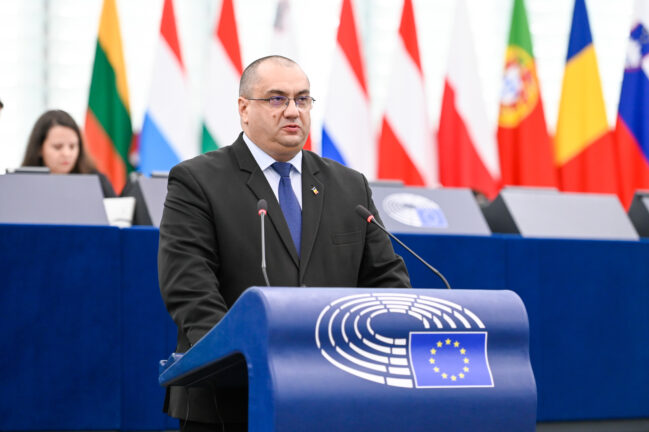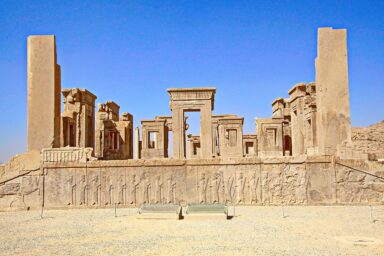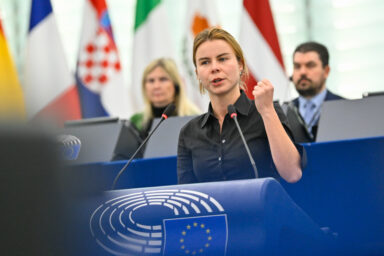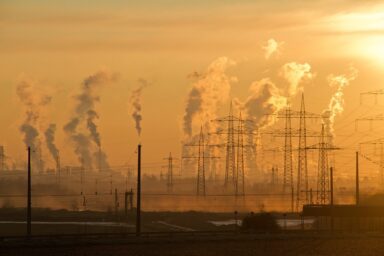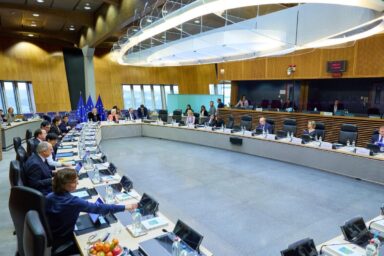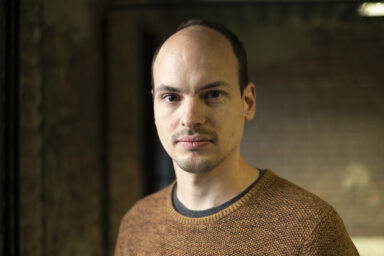Though geographically distant, Greenlanders are part of Europe’s family and deserve stronger support from the EU, MEP Cristian Terhes (ECR/ROU) told EU Perspectives upon his return from a parliamentary mission to the Arctic. The territory’s significance for European security goes beoynd military concerns, he said.
Seven members of the European Parliament’s Security and Defence Committee paid a visit to Greenland on 16 to 18 September to keep their frozen fingers on the pulse of Europe’s engagement in the territory. They went to Nuuk, Greenland’s capital; Ilulissat, its primary tourist hub; and smaller communities to speak with local representatives, indigenous Inuit groups, and Danish naval officials. Cristian Terhes, a Conservative MEP from Romania spoke to EU Perspectives about what they gleaned from their conversations. “Over there I can say that we were one team,” he told EU Perspectives, describing how members set aside party lines to focus on the challenges facing the Arctic region.
The SEDE delegation arrived in Greenland during a week of shifting dynamics in Danish and European defence. Copenhagen had just announced a “paradigm shift” in its security strategy, including the purchase of long-range European air-defence missiles and higher military spending. For MEPs, Greenland was the right place to reflect on how these broader European decisions intersect with the realities of a small, scattered population living in one of the world’s most strategic regions.
More than the military
Europe and Greenland face similar choices in this period of geopolitical flux. While NATO’s deterrence role in the Arctic remains central, Mr Terhes stressed that security in Greenland cannot feature military calculations alone. The island, he said, finds itself in a web of environmental, social, and economic pressures. These range from Russia’s Arctic shipping corridor to the vulnerabilities of isolated villages dependent on fishing.
One of Mr Terhes’s strongest messages was the need to broaden the concept of security. “Military security is just one aspect,” he explained. “You need food security, economic security, social cohesion. And this is where the European Union can help a lot.”
You might be interested
Greenland’s vast territory—the world’s largest non-continental landmass—is home to only 57,000 people. For many, reaching school or healthcare services requires long, expensive journeys, often made impossible during winter months when seas freeze. Education remains a critical challenge. “A lot of indigenous people and their kids mainly have a challenge going to high school or university in Nuuk,” Mr Terhes noted. “This is something we will be working on—helping them to more education in important fields needed for the local economy, including mining or policing.”
Infrastructural hurdles
Environmental risks compound the pressure. The opening of new Arctic shipping routes north of Russia threatens to unleash geopolitical competition and ecological harm. “Imagine that the whole area doesn’t have any trees. All the CO2, all the emissions from vessels travelling in the area—how is nature going to absorb it?” Mr Terhes asked.
Fishing remains Greenland’s economic backbone, accounting for over 95 per cent of its GDP. Yet much of the catch is exported to Denmark for processing, limiting local value creation. “We had discussions about finding ways for them to process that fish over there,” Mr Terhes said, suggesting EU assistance could help build infrastructure, deepen harbours, and train workers in new sectors.
This is not an ideological issue or a political issue. This touches the fundamentals of the European Union and the relationship we should have with Greenland. — MEP Cristian Terhes (ECR/ROU)
Transport poses another obstacle. Many villages are accessible only by air or boat, and only during summer. Danish naval patrols often double as rescue services for stranded hunters or fishermen. Mr Terhes praised these efforts but argued EU initiatives could complement them by strengthening Greenland’s civilian economy and social services.
Cultural identity
“Based on what I saw on the ground, the EU already does a lot,” the MEP acknowledged, pointing to European support for schools and training. “But there are as many opportunities as there are challenges. For us being there on the ground, seeing the climate, seeing the people, talking to them—it helped us understand the situation better.”
For Mr Terhes, the mission concerned not only geopolitics but also identity. Visiting Greenland’s museums and speaking with Inuit leaders, he was struck by the depth of local history and culture. “They have thousands of years of proof of civilization there. I don’t know how many people know that. This is something we need to respect, discover, uncover, and promote.”
The beauty of the European Union is that we have so many nations, civilizations, people of different backgrounds. And people of Greenland are one of us. — MEP Cristian Terhes (ECR/ROU)
The Romanian MEP framed Greenland within the larger European story: a mosaic of diverse peoples united despite differences. “The beauty of the European Union is that we have so many nations, civilizations, people of different backgrounds. And people of Greenland are one of us. They need our support and we will be there for them.”
No politicking
After the mission, Mr Terhes and his colleagues are drafting proposals to strengthen the EU’s engagement in the Arctic. For him, the central task is to balance the priorities of NATO’s military security and EU-led social, economic, and environmental support.
“This is not an ideological issue or a political issue. This touches the fundamentals of the European Union and the relationship we should have with Greenland,” he concluded. “The Greenlanders are hardworking people in a tough environment. They are ready to defend their land—but we, as Europeans, must also stand ready to support them.”
